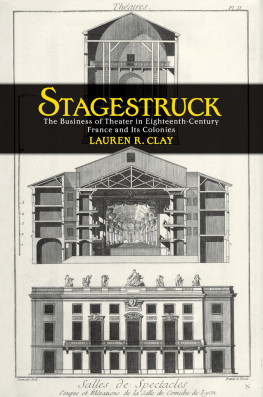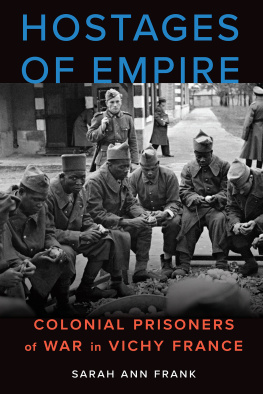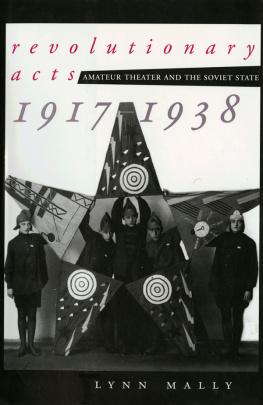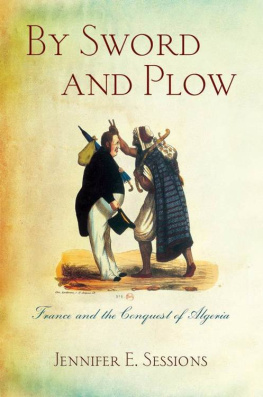Lauren R. Clay - Stagestruck: The Business of Theater in Eighteenth-Century France and Its Colonies
Here you can read online Lauren R. Clay - Stagestruck: The Business of Theater in Eighteenth-Century France and Its Colonies full text of the book (entire story) in english for free. Download pdf and epub, get meaning, cover and reviews about this ebook. year: 2013, publisher: Cornell University Press, genre: Romance novel. Description of the work, (preface) as well as reviews are available. Best literature library LitArk.com created for fans of good reading and offers a wide selection of genres:
Romance novel
Science fiction
Adventure
Detective
Science
History
Home and family
Prose
Art
Politics
Computer
Non-fiction
Religion
Business
Children
Humor
Choose a favorite category and find really read worthwhile books. Enjoy immersion in the world of imagination, feel the emotions of the characters or learn something new for yourself, make an fascinating discovery.
- Book:Stagestruck: The Business of Theater in Eighteenth-Century France and Its Colonies
- Author:
- Publisher:Cornell University Press
- Genre:
- Year:2013
- Rating:3 / 5
- Favourites:Add to favourites
- Your mark:
Stagestruck: The Business of Theater in Eighteenth-Century France and Its Colonies: summary, description and annotation
We offer to read an annotation, description, summary or preface (depends on what the author of the book "Stagestruck: The Business of Theater in Eighteenth-Century France and Its Colonies" wrote himself). If you haven't found the necessary information about the book — write in the comments, we will try to find it.
Stagestruck traces the making of a vibrant French theater industry between the reign of Louis XIV and the French Revolution. During this era more than eighty provincial and colonial cities celebrated the inauguration of their first public playhouses. These theaters emerged as the most prominent urban cultural institutions in prerevolutionary France, becoming key sites for the articulation and contestation of social, political, and racial relationships. Combining rich description with nuanced analysis based on extensive archival evidence, Lauren R. Clay illuminates the wide-ranging consequences of theaters spectacular growth for performers, spectators, and authorities in cities throughout France as well as in the empires most important Atlantic colony, Saint-Domingue.Clay argues that outside Paris the expansion of theater came about through local initiative, civic engagement, and entrepreneurial investment, rather than through actions or policies undertaken by the royal government and its agents. Reconstructing the business of theatrical production, she brings to light the efforts of a wide array of investors, entrepreneurs, directors, and actorsincluding women and people of colorwho seized the opportunities offered by commercial theater to become important agents of cultural change.Portraying a vital and increasingly consumer-oriented public sphere beyond the capital, Stagestruck overturns the long-held notion that cultural change flowed from Paris and the royal court to the provinces and colonies. This deeply researched book will appeal to historians of Europe and the Atlantic world, particularly those interested in the social and political impact of the consumer revolution and the forging of national and imperial cultural networks. In addition to theater and literary scholars, it will attract the attention of historians and sociologists who study business, labor history, and the emergence of the modern French state.
Lauren R. Clay: author's other books
Who wrote Stagestruck: The Business of Theater in Eighteenth-Century France and Its Colonies? Find out the surname, the name of the author of the book and a list of all author's works by series.










